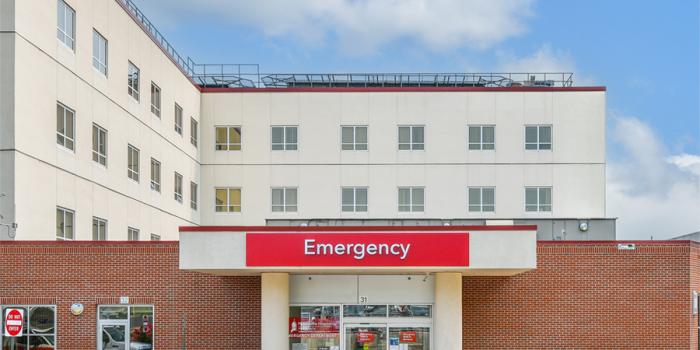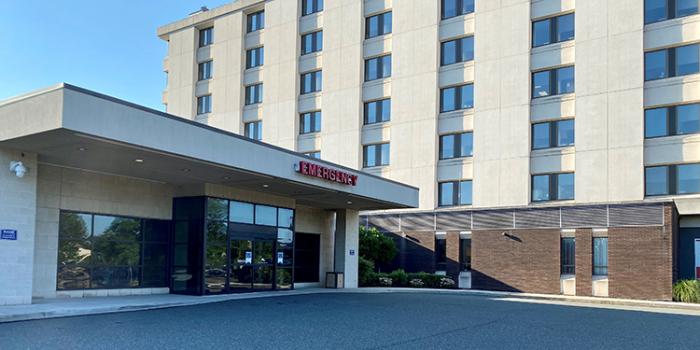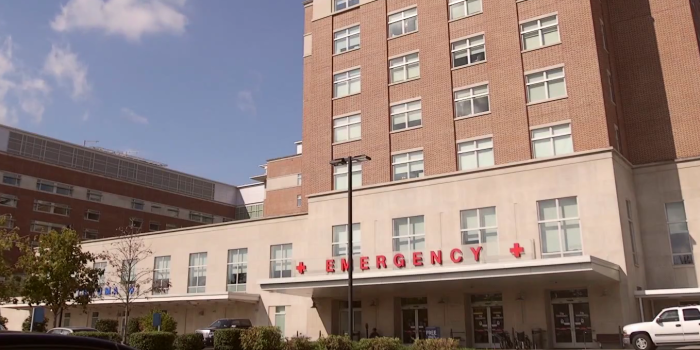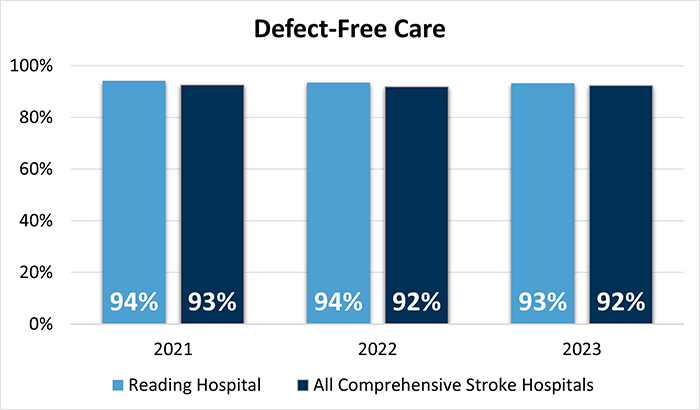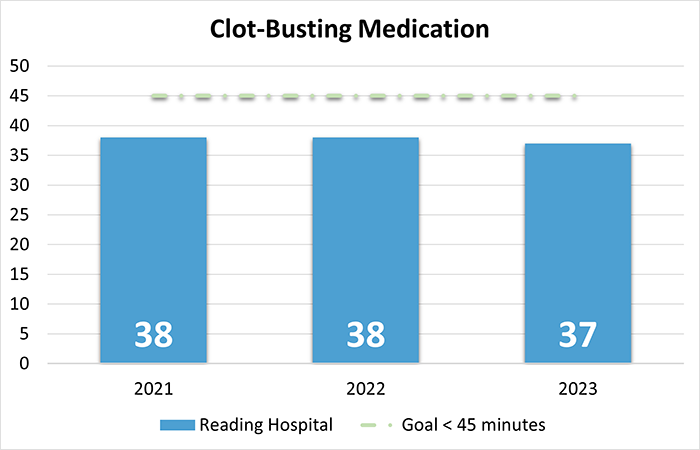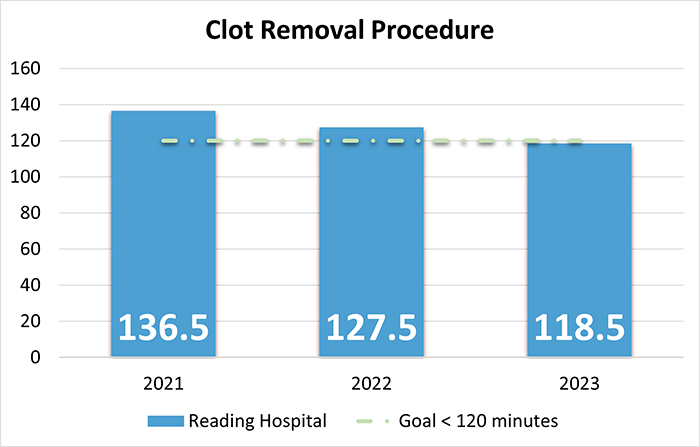Accredited by The Joint Commission as a Primary Stroke Center, we provide life-saving treatment for complex stroke patients, including access to innovative endovascular treatments to stop or reverse the long-term effects of a stroke.
Accredited Tower Health Hospitals
Rapid-response treatment for stroke offers the greatest chance for recovery and reduces the risk of permanent brain damage. Our hospitals have long been recognized as leaders in stroke care. Tower Health has four Primary Stroke Centers (PSC) to serve people in southeastern Pennsylvania.
Pottstown Hospital, Phoenixville Hospital, as well as our Advanced Primary Stroke Center at Reading Hospital, are all fully equipped and staffed to provide state-of-the-art rapid evaluation and treatment of stroke. Here’s what makes us different:
- The Rapid Response Stroke Alert team at Reading Hospital has outcomes in the top 5 percent nationally
- Neurologists, Neurosurgeons, and Neurointerventional Radiologists are available 24/7
- We have the 24/7 expertise to administer intravenous tPA (medicine to break up a blood clot)
- We focus on rapid response in a 24-hour "window of opportunity" for advanced mechanical intervention
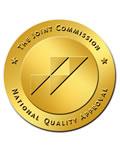
The Joint Commission Advanced Primary Stroke Center
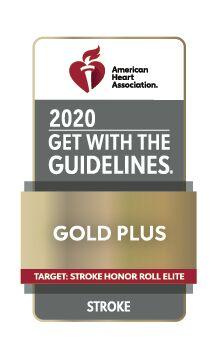
American Heart Association and American Stroke Association

The Joint Commission Primary Stroke Centers
To become a certified Advanced Primary Care Stroke Center, organizations meet standardized performance and clinical quality measures and undergo an onsite certification review.
Here’s how Reading Hospital achieved The Joint Commission Advanced Primary Stroke Center designation:
- Program medical director. Our team is led by a medical director with extensive cerebrovascular expertise.
- Advanced imaging capabilities. Our hospital offers 24/7 imaging for stroke care, including computed tomography, computed tomography angiography, computed tomography perfusion, and stroke magnetic resonance imaging. We also perform cranial and cardiac ultrasounds when needed.
- 24/7 stroke specialists. Our best-in-class team provides the advanced care needed for complex stroke and aneurysm cases.
- Vascular neurologists. Our experts offer a rapid evaluation (bedside or tele) to identify acute stroke symptoms and collaborate with other specialists to determine treatment.
- Neuroradiologists. Specialists provide expert interpretation of advanced brain imaging and timely communication to our vascular neurologist to assist with emergent treatment decisions.
- Neurointerventionalists. Using minimally invasive techniques, our team quickly removes blood clots from brain vessels and restores blood flow to preserve brain tissue.
- Vascular neurosurgeons. Specializing in treating blood vessel abnormalities, such as an aneurysm (a bulging in an artery), our team performs precise surgical procedures to clip or coil the aneurysm to reduce the risk of further bleeding.
- Neurointensivists. Our experts specialize in acute brain disorders and treat life-threatening medical complications that are impacted by a stroke. These can include the heart, lungs, and kidneys.
- Dedicated neuro intensive care unit. With 24/7, Neuro-specialized intensivist service providing advanced multimodality monitoring.
- Dedicated stroke unit. Our hospital brings together Hospitalists, specialty trained nurses, and other care providers with experience in stroke care.
Here’s how Pottstown and Phoenixville Hospitals achieved The Joint Commission Primary Stroke Center designation:
- Standardized method for delivering care centered on evidence-based guidelines for stroke care
- Program Medical Director with experience in cerebrovascular disease
- Acute stroke team available 24/7 and at the bedside within 15 minutes
- Emergency Medical Services collaboration and access to protocols
- Designate stroke unit or designated beds for the care of acute stroke patients
- Emergency department collaboration with the initial assessment
- Advanced imaging available 24/7, and cardiac imaging when appropriate
- 24/7 neurology expertise in person or through telemedicine
- Neurosurgical services within two hours of consultation
- Operating rooms available 24/7
- Collaboration with EMS and community outreach

